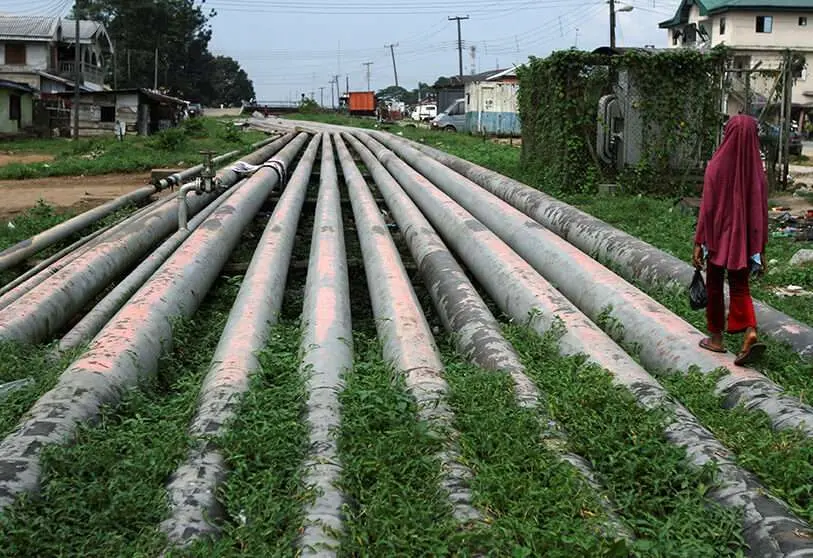Africa: Spain's energy salvation is close

The war in Ukraine has demonstrated Europe's great dependence on Russian gas, from which it theoretically wants to disengage, something that is difficult to implement in practice. As a result, the continent is on the lookout for other energy suppliers beyond Moscow. And while the United States now appears to be meeting European gas demand through LNG-fuelled ships, it comes at a higher price than piped gas from either Russia or Algeria (Algeria supplies most of the gas consumed in Spain).
At the national level, the need to find a constant and more important politically and economically stable supplier of energy becomes clear when one considers that Spain only produces 0.34% of the gas it consumes, and that this gas comes from a single field.
Spain, however, has at its side a continent that could be its energy salvation and, by extension, also that of Europe: Africa. And not only Algeria - Spain's main gas supplier - but also Nigeria, a booming oil and gas producer, and Morocco, where the world's largest solar power plant, Noor 1, is being built.
To get all this energy to us, it will not only require the creation of pipelines, whether onshore or offshore, to supply us with energy, but also the stabilisation of the region. This means that most of the energy we take out of the African continent will most likely have to pass through the Sahel, a region where terrorist instability and governmental violence will most likely make it difficult to install pipelines. And while it may be possible to move energy from the continent by undersea cable, it would be costly in terms of time and money to install, due to the long distances that would have to be covered. These logistical and security dilemmas are likely to force us in the short to medium term to remain dependent on US gas, at the expense of paying more for it.
Beyond the dilemma of how to counter the terrorist threat in a region close to Spain - a challenge to which Spain should pay attention due to our geographical proximity - diplomatic relations with African energy-supplying countries need to be strengthened. In this respect, there is no point in creating alarm about maritime sovereignty and hypothetical water pollution. I refer to the recent statements by certain political groups in the Canary Islands expressing alarm at Morocco's decision to prospect for oil in waters close to the Canary Islands. Prospecting is not the same as exploitation, so it is unlikely that an oil spill will occur in the short term. Moreover, if we look at the past, ten years ago there was also oil prospecting - this time in Canary Islands waters - and no oil was found in sufficient quantities to exploit it.
The same applies to Algeria. While it is understandable that it will raise the price of the gas it sells us from now on in retaliation for the pro-Moroccan turn in Western Sahara, the decision not to cut off our gas supply on condition that it does not reach Morocco offers us an unprecedented diplomatic opportunity. Our country has the potential to maintain good relations with two key partners, one on energy and the other on security and migration, without having to opt exclusively for one. If Spanish diplomacy is able to keep the delicate diplomatic game with Morocco and Algeria under control, it is quite likely that gas supplies to Algeria will lessen our dependence on US gas, which, as mentioned earlier, is more expensive and more distant for Madrid than Algerian gas. In addition, we would be able to maintain good relations with Morocco, with the possibility of investment in the booming Alawi renewables industry, as well as improving cooperation in the fight against terrorism and the migration challenge.
In conclusion, the conflict in Ukraine has highlighted Europe's over-dependence on Russian gas, triggering the search for alternative suppliers. For now, the United States seems to be covering demand, albeit at a higher price and at a greater distance than Russian gas. For Spain, Africa presents an opportunity to avoid its dependence on US gas. Countries such as Morocco, Algeria and Nigeria offer fossil and renewable energy sources on our doorstep. In order to get these countries to supply us with their energy, the terrorist threat in the Sahel, through which the pipelines that will supply the continent's energy will pass, must be effectively dealt with. In the case of energy from Algeria and Morocco, Spain must put aside alarmist talk of hypothetical pollution from oil exploration and seize the opportunity to maintain good relations with Algeria and Morocco. Good relations with both countries will allow us to maintain a cheaper flow of gas than the United States and boost the fight against terrorism and migration policies without the need to degrade relations with one of the parties.
Let us seize the opportunity that Africa gives us in the energy field.
BIBLIOGRAPHY
- España produjo sólo un 0,3% del gas que consumió en 2021 y paga el doble al comprarlo por barco que, por gasoducto, El Mundo, abril de 2022, https://www.elmundo.es/ciencia-y-salud/medioambiente/2022/04/26/62668c52fdddffae0c8b45c1.html
- Argelia advierte a España: ni una gota de gas argelino a Marruecos o se rompen los contratos, El Confidencial, abril de 2022, https://www.elconfidencial.com/espana/2022-04-27/argelia-avisa-espana-cortar-gas-desviar_3415627/

